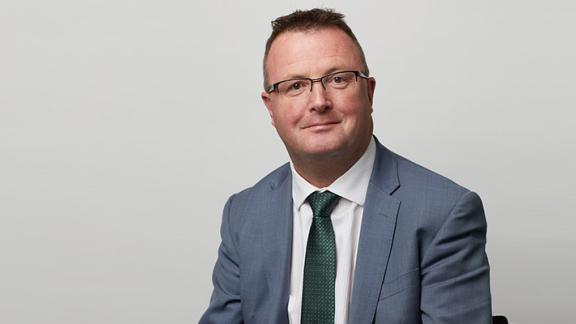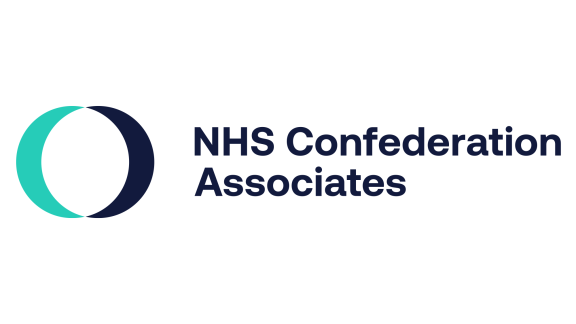The police's rushed withdrawal from mental healthcare is creating serious risks

Challenges in implementing the Right Care Right Person policy reveal concerns over resource allocation, local coordination, and potential risks to vulnerable individuals, writes Sean Duggan.
This article was first published in HSJ on 24 April 2024
The National Partnership Agreement; Right Care Right Person (RCRP), is a country-wide policy which sets out what is needed to ensure that people experiencing a mental health crisis receive an appropriate, health-based response.
While the aims of the agreement between the Home Office, Department of Health and Social Care, the National Police Chiefs’ Council, Association of Police and Crime Commissioners, and NHS England are ones we agree with, as with many policies, it is the implementation that can prove difficult and there are growing concerns from across the health and care system about the speed at which RCRP is being brought in.
There is also apprehension that there is a disconnect between national and local leadership, and health, care and emergency service professionals on the ground. RCRP was set up in many areas before the guidance was published, and police forces and the NHS are working to separate guidance.
Meanwhile, local authorities have been on the back foot from the beginning. They are not signatories of the national agreement, and guidance for social care has still not been published.
The National Police Chiefs’ Council states the policy is estimated to save the police around 1 million police officer hours each year.
But the demand for emergency mental health responses will not just disappear. It will pass to health and care services, who have not been given sufficient time or resources to build up the capacity to respond to this demand.
Mental health services are already facing significant pressures. Last year saw a 40 per cent rise in the number of people in contact with mental health services compared to 2019.
The London Ambulance Service are receiving around 200-250 additional incidents each day due to RCRP and they estimate the policy will cost £6.8 million in 2025/26 alone. Giving evidence to the Commons Health and Social Care Committee last year Birmingham and Solihull Mental Health Foundation Trust CEO Roisin Fallon Williams said health leaders had estimated the cost to the NHS in England could be around £260 million a year. This is an additional cost burden to the health service that has not yet been acknowledged by the government.
While police must still attend if a crime is occurring, or when there is a risk of serious harm to an individual, worryingly we have heard of blanket approaches where police will not attend any calls relating to mental health, or attend welfare checks, even when the person is not known to mental health services.
Health leaders are also concerned about the impact of inequalities in mental health support. People from ethnic minorities are more likely to access mental health support via crisis care, so they will be overrepresented in the group that RCRP relates to. People with autism and children and young people are also vulnerable groups that could slip through the gaps in this policy.
Some, including the Royal College of Emergency Medicine, are calling for children and young people to be excluded from RCRP altogether.
The NPCC’s ongoing work with partners to agree on a set of principles which apply specifically to the RCRP approach where children are involved is welcome.
Ensuring that everyone who is in a mental health crisis receives appropriate, health-based support and that no vulnerable person is allowed to fall through the gaps of statutory services is crucial
However, overall, there needs to be much greater clarity at a local level between police, health and care and fire service staff working at the coal face on the roles and responsibilities of each partner, and the timescales of implementation. This is lacking in too many areas.
Linked to this is additional training for police and call-handling staff on what specialist support is available for people in mental health crises.
Mental health crisis care has improved significantly over the years. All areas now have a 24/7 crisis line, psychiatric liaison staff are in every acute hospital, crisis houses have been set up and improvements to the NHS 111 services for people requiring support for their mental health are being rolled out across the country.
Ensuring that everyone who is in a mental health crisis receives appropriate, health-based support and that no vulnerable person is allowed to fall through the gaps of statutory services is crucial. This relies on effective partnership working between mental health, ambulance, integrated care boards, local authorities and police and fire services; and the ability of the NHS to build up capacity to support people who would have otherwise been supported by the police.
What we need is a long-term, ongoing evaluation of the impact of the RCRP policy on the whole of the health service.
Health leaders are pleased that the Department of Health and Social Care has commissioned a short-term evaluation project into the impact on the NHS in five areas but now want to see this as an ongoing evaluation across the country. It must also include the views and experiences of people with mental health issues and have a focus on the most at-risk groups.
The aims of Right Care Right Person are laudable. But it must be implemented at a pace that doesn’t risk the safety of some of the most vulnerable people in our society.
Sean Duggan is chief executive of the Mental Health Network. Follow Sean on Twitter @SeanDugganMHN and @NHSConfed_MHN



